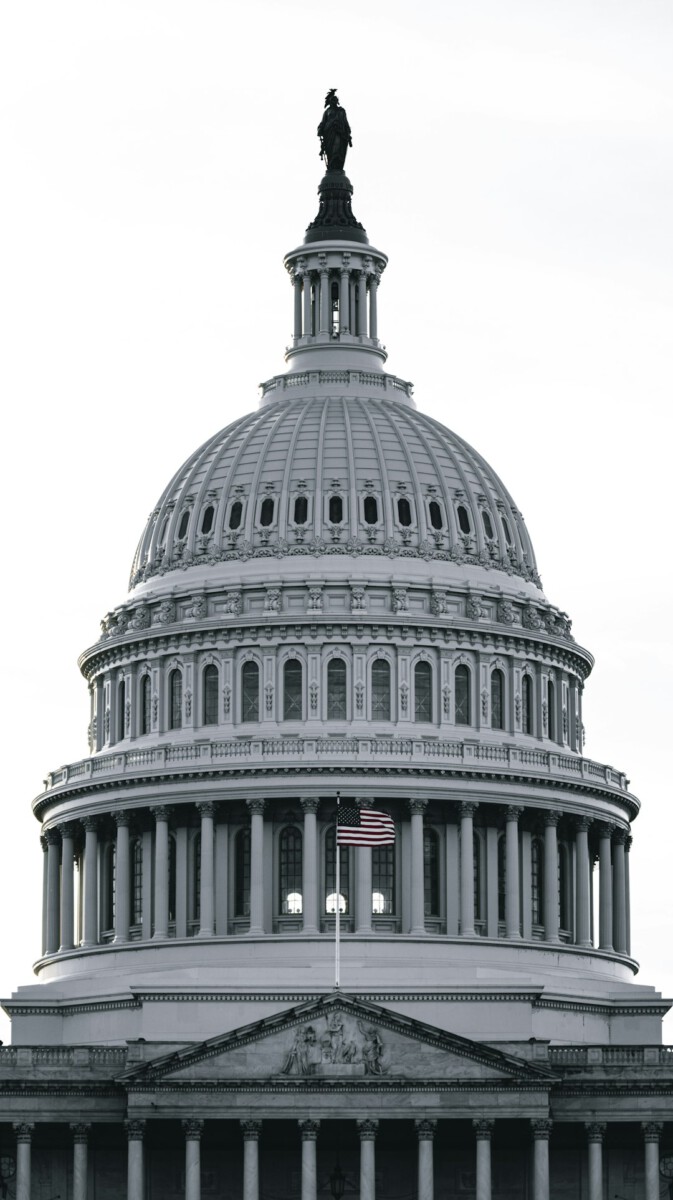The Shocking Revelation That Changed Everything (Image Credits: Unsplash)
In the bustling corridors of power, where alliances shift like shadows under harsh fluorescent lights, a nomination meant to tighten oversight has instead sparked a firestorm of backlash.
The Shocking Revelation That Changed Everything
Imagine a quiet Tuesday morning shattered by headlines that no one saw coming. Reports emerged detailing text messages from Paul Ingrassia, Trump’s choice to head the Office of Special Counsel, filled with inflammatory language. He reportedly mocked the Martin Luther King Jr. holiday and even confessed to a “Nazi streak” in private chats. It’s the kind of detail that turns stomachs and forces even allies to take a step back.
This isn’t just gossip; it’s a direct hit to a key role meant to protect federal whistleblowers and enforce ethics rules. Ingrassia, once a rising star in conservative circles, now finds his path blocked by his own words. The fallout has been swift, with Democrats piling on and Republicans quietly distancing themselves.
Yet, the White House stands firm for now, defending their nominee amid the chaos. How did things unravel so quickly? It all traces back to those leaked messages that paint a picture far removed from the polished image Trump projected.
Key Players Breaking Ranks
Senate Majority Leader John Thune didn’t mince words when he declared the nomination “dead on arrival.” His stance sets the tone, signaling that even loyal Trump supporters won’t stomach this level of controversy. At least four GOP senators have voiced opposition, a rare show of independence in a party often aligned with the president.
Thune’s comment came after Politico’s explosive report, which detailed the texts in a group chat. Other senators, like those on key committees, echoed the sentiment, worried about the damage to the party’s image. It’s a reminder that in Washington, personal history can torpedo even the most strategic picks.
What the Texts Actually Said
The messages, shared years ago in a private setting, reveal a side of Ingrassia that’s hard to ignore. One text reportedly dismissed the MLK holiday with disdain, while another admitted to occasional extreme views. These aren’t ambiguous slips; they’re raw and unfiltered, raising red flags about judgment under pressure.
Critics argue this disqualifies him from a watchdog position that demands impartiality. Supporters might call it youthful indiscretion, but the timing couldn’t be worse. As the Senate gears up for confirmation battles, these words hang heavy over every discussion.
Democrats Seize the Moment
Across the aisle, Democrats wasted no time demanding Trump withdraw the nomination. They frame it as a pattern of poor choices, tying it to broader concerns about extremism in appointments. Senate Minority Leader Chuck Schumer called the texts “unacceptable,” urging a full investigation.
This push isn’t just partisan theater; it highlights real fears about who oversees federal accountability. With the Office of Special Counsel playing a crucial role in protecting employees from retaliation, the stakes feel personal to many. The controversy amplifies calls for higher standards in nominations.
Still, some wonder if this will force a broader reckoning within the GOP on vetting processes. For now, it unites opponents in a way few issues do.
Impact on Trump’s Agenda
Trump’s second term relies on swift confirmations to push his vision forward, but this snag could slow momentum. The Office of Special Counsel isn’t flashy, yet it’s vital for internal reforms Trump champions. Losing this battle might embolden critics and complicate future picks.
Here’s a quick look at how this fits into larger patterns:
- Similar past controversies have derailed nominees, like judicial picks with questionable histories.
- GOP unity on Trump appointments has cracks, especially on ethics-related roles.
- Public scrutiny via leaks keeps pressure high, forcing quick decisions.
- Whistleblower protections could suffer if the role stays vacant too long.
- Overall, it tests the party’s tolerance for baggage in high-stakes positions.
Analysts predict this could ripple into other hearings, making senators more cautious. Trump might pivot to a safer choice, but the damage to trust lingers.
Broader Implications for Oversight
Beyond the headlines, this episode underscores the fragility of federal watchdogs. The Office of Special Counsel handles everything from Hatch Act violations to prohibited personnel practices. A leader with a tainted past risks undermining its credibility from day one.
Experts point out that impartiality is non-negotiable here. If confirmed despite the uproar, it could erode public faith in government accountability. On the flip side, the Senate’s rejection might strengthen the institution’s role.
Key Takeaways
- Racist texts have united GOP senators against the nominee, marking a significant break from Trump loyalty.
- The controversy spotlights the need for thorough vetting in sensitive oversight positions.
- Expect delays in Trump’s agenda as this plays out, potentially reshaping confirmation dynamics.
At its core, this story reveals how personal flaws can upend political plans in an instant. It leaves us questioning the balance between loyalty and integrity in leadership. What do you think – should the White House double down or cut ties? Share your thoughts in the comments below.



